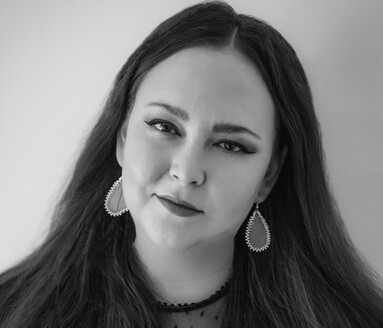‘Write your own story’
Liz Howard on poetry and breaking free from the past
Celebrated poet Liz Howard is the new Jake MacDonald writer-in-residence for fall 2022 at the University of Winnipeg. (Supplied photo)
Howard’s love for writing poetry began at six years old, when she was first introduced to William Shakespeare’s play Macbeth. She was captivated by the women protagonists: the Weird Sisters and the tragic queen Lady Macbeth.
“What really stuck in my mind was the manner in which these characters were speaking. The meter verse in which their speech was written got lodged inside of my brain almost like an earworm. I found my internal speech and my thoughts becoming tuned or entrained to this meter of speech,” Howard says.
This introduction prompted Howard to begin writing down her thoughts. Her feelings and ideas became poetry.
Howard’s writing process is shaped by whatever reading and research she happens to be doing at the time.
“I’ll spend (periods) of time just sitting with my journal and writing these blocks of text, doing an almost sort of stream-of-consciousness style of writing,” she says. “This produces a lot of content (that I can) work with.”
“I’ll go back successively and pick out language in pieces from this big block of text that I want to work with and shape. That is how poems are born for me.”
For those interested in writing, Howard recommends letting thoughts and emotions move freely, without pressure or preconceived expectations.
“Let your thoughts flow on the page. Let your interests, your everyday life and your obsession guide what you write about,” she says. “We don’t always have to go straight for the throat of beauty and truth. So many things can be right for a poetic or writerly treatment.”
Poetry, like other literary pursuits, traces its origin to “the greats,” to dead white men who continue to shape and reform how people think about literature today. These hegemonic, inaccessible standards have the potential to limit or exclude anyone who isn’t white or a man.
In her poem “Contact,” Howard rewrites an epic from Henry Wadsworth Longfellow “The Song of Hiawatha.” Howard inserts her own language and experience into Longfellow’s work, a racist and incorrect account of Anishinaabe oral history.
For marginalized people who find themselves outside of these limiting traditions, Howard urges a similar spirit of repossession.
“Go ahead and write your own story on your own terms,” she says. “There are many writers who might take a work from the ‘canon’ and then perform various interventions upon it in a way that represents their experience.”
For those hoping to move beyond these traditions, Howard recommends a collection from the Canadian poet Lisa Robertson titled Debbie: An Epic. “She’s working with but also against the epic poetic tradition, dominated by the great classical male poets Homer and Virgil.”
Howard will participate in two public events during her residency: the Jake MacDonald Reading and the International Writers’ Panel, where she and another writer will discuss creative writing and social justice.
Published in Volume 77, Number 05 of The Uniter (October 6, 2022)






